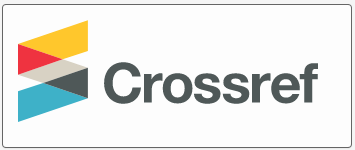Doing Homework - a Routine or a Fun Activity?
DOI:
https://doi.org/10.52340/idw.2021.543Keywords:
homework, Routine work, research, Intervention, „non-traditional“ homeworkAbstract
The article discusses the role of homework as one of the important components of assessing student achievement in the process of monitoring the quality of teaching and learning, because it is the quality of homework that provides important information about the individual progress of the student. Emphasis is placed on the importance of homework for the student to develop comprehension of learning materials and problem-solving skills independently.Based on the results of the research, the difficulties that accompany homework are analyzed. The role and responsibility of the teacher is defined to determine and take into account the optimal volume and complexity of homework, which is extremely important for achieving the main goals of learning and upbringing.The author focuses on the questions: What factors influence this process? What individual characteristics can students have? In what environment do they have to do their homework? How much volume and difficulty should homework be given so that the student does not lose interest and belief in their own strengths? Should a parent intervene in the homework process or not? Analysis of the data shows that only a small proportion of students have the opportunity to isolate themselves from family members during their studies. Most do not have a suitable work space to do their homework, study in a common room, with the TV on and talking to family members, or in the kitchen.The author believes that it is advisable to plan and implement interventions to help both students and parents. Finally, some examples of „non-traditional“ homework are suggested, as well as interventions to help parents.
Downloads
References
ეროვნული სასწავლო გეგმა http://ncp.ge/ge/curriculum/satesto-seqtsia/akhali-sastsavlo-gegmebi-2016-202
შ.ნადირაშვილი - „პიროვნების სოციალური ფსიქოლოგია“ თსუ-ს გამომცემლობა, თბ. 1975 წ.
მ. დოლიძე - უმცროსკლასელთა ფსიქოლოგიის საკითხები. თბ. 1997
ტ.ჟღენტი, ზ. ცუცქირიძე - დიდაქტიკა
რ.ჯ.მარზანო და სხვ. – „ეფექტური სწავლება სკოლაში“ მასწავლებელთა პროფესიული განვითარების ეროვნული ცენტრის გამოცემა.
სწავლება და შეფასება – მასწავლებელთა პროფესიული განვითარების ეროვნული ცენტრის გამოცემა. გვ. 59, თბ. 2008 წ.
ნ. ლაბარტყავა - „როგორ დავეხმაროთ მოსწავლეს საშინაო დავალების შესრულებაში“. მასწავლებელთა პროფესიული განვითარების ეროვნული ცენტრის გამოცემა. გვ. 137, თბ. 2014 წ.
ა. ჯანელიძე; „მშობლებთან თანამშრომლობა - გამოწვევა მასწავლებლისთვის“. მასწავლებელთა პროფესიული განვითარების ეროვნული ცენტრის გამოცემა. გვ. 37, თბ. 2014 წ.
მ. ხუნძაყიშვილი, ს. ბივერი - „განმავითარებელი შეფასება და დიფერენცირებული სწავლება“ მასწავლებელთა პროფესიული განვითარების ეროვნული ცენტრის გამოცემა. თბ. 2018 წ.







